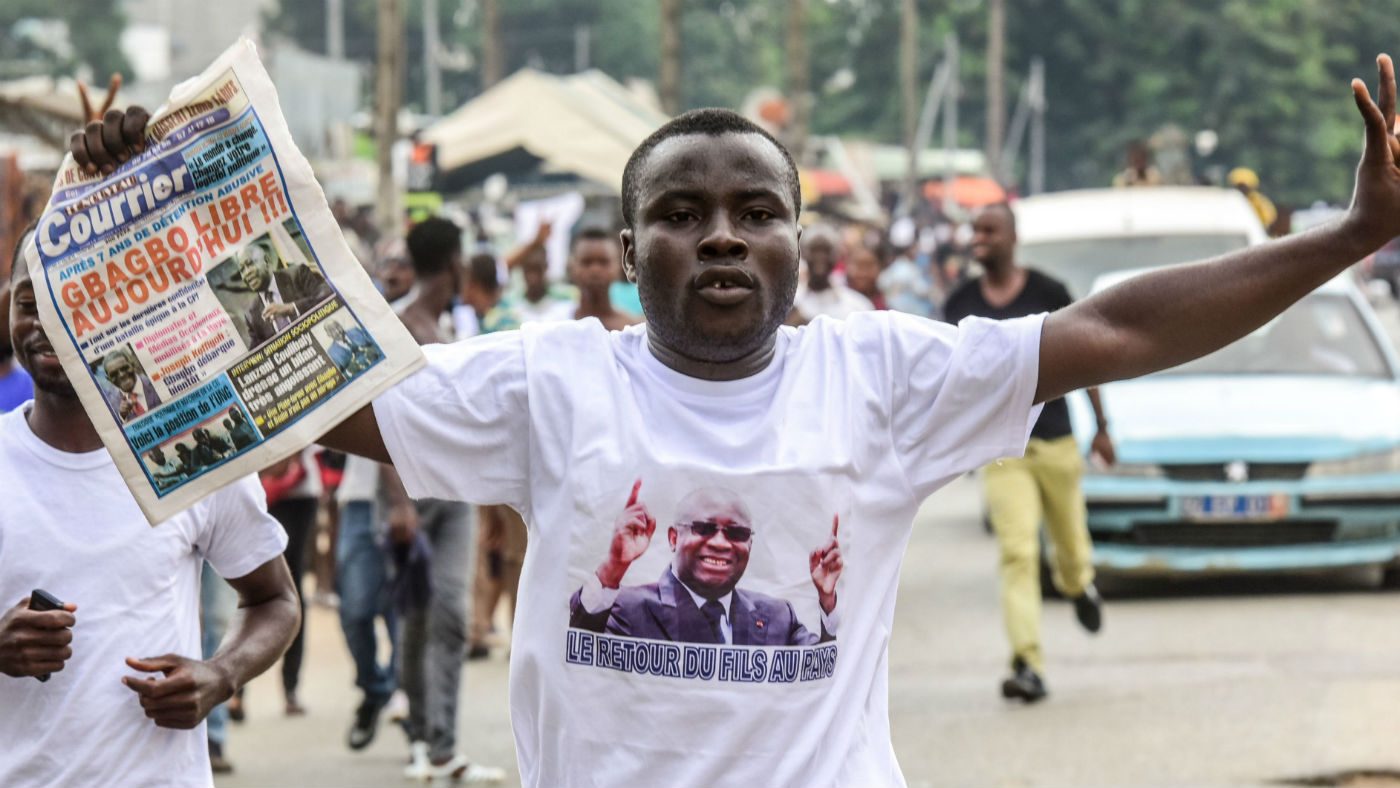Is the International Criminal Court fit for purpose?
Ex-president of the Ivory Coast, Laurent Gbagbo, acquitted by the ICC after seven years in jail

A free daily email with the biggest news stories of the day – and the best features from TheWeek.com
You are now subscribed
Your newsletter sign-up was successful
The ex-president of the Ivory Coast has been acquitted of crimes against humanity by the International Criminal Court, raising further questions about the credibility and effectiveness of the Hague-based institution.
Laurent Gbagbo, who was charged in connection with violence following a disputed 2010 election that left 3,000 dead and 500,000 displaced, was the first former head of state to go on trial at the ICC.
The five-month stand-off between supporters of Gbagbo and his rival, Alassane Ouattara, saw some of the most brutal clashes in the country's history, and only came to an end after French-backed forces stormed the presidential palace.
The Week
Escape your echo chamber. Get the facts behind the news, plus analysis from multiple perspectives.

Sign up for The Week's Free Newsletters
From our morning news briefing to a weekly Good News Newsletter, get the best of The Week delivered directly to your inbox.
From our morning news briefing to a weekly Good News Newsletter, get the best of The Week delivered directly to your inbox.
Yet despite claims by the prosecution that Gbagbo had used “all means” to cling to power, judges ruled they had failed to demonstrate “the existence of a 'common plan' to keep Gbagbo in power” which included crimes against civilians, or a “policy to attack a civilian population”.
After spending seven years in prison, “Gbagbo will follow in the footsteps of his wife Simone Gbagbo, who walked away from a 20-year jail term in Ivory Coast in August when she was granted amnesty by Ouattara after seven years in prison”, reports Al Jazeera.
Inside the court, the public gallery erupted in loud cheers, while outside supporters of Gbagbo gathered with champagne. In Ivory Coast’s economic capital, Abidjan, shirtless men ran through the streets toasting the former president.
But victims of the civil war who had testified against him were devastated, with some worried about reprisals and others considering leaving the country. Human rights organisations described the ruling as “disastrous”.
A free daily email with the biggest news stories of the day – and the best features from TheWeek.com
Gbagbo’s acquittal has raised serious questions about the ICC, which has failed in its attempt to build successful cases against former DR Congo Vice-President Jean-Pierre Bemba, and Kenyan President Uhuru Kenyatta.
Since it came into being in 2002, ICC prosecutors have won only three war crimes convictions.
“Whenever a case involving mass atrocities essentially collapses at the ICC, it does damage to the perception of the court as a credible and effective institution of international justice,” Mark Kersten, author of Justice in Conflict, told the BBC.
“Many are concerned that the court is emerging as an institution where only rebels can be successfully prosecuted,” he said.
The Guardian says the 17-year-old ICC “has long been criticised for disproportionately going after Africans”, although the current prosecutor, Fatou Bensouda, a Gambian, has worked to change that, opening investigations in Afghanistan, Iraq, Palestine and the Ukraine.
The New York Times says “some analysts have criticised the overall approach of the court — a faraway entity that targets leaders and works largely through intermediaries who fail to gain the trust of locals”.
“On the other hand, the ruling demonstrates the judges' independence and impartiality and makes it harder to push the narrative, popular among those who fear the long arm of the ICC, that the court is a biased weapon of neo-colonial justice used purely to convict African leaders,” the BBC’s Anna Holligan says.
-
 Political cartoons for February 18
Political cartoons for February 18Cartoons Wednesday’s political cartoons include the DOW, human replacement, and more
-
 The best music tours to book in 2026
The best music tours to book in 2026The Week Recommends Must-see live shows to catch this year from Lily Allen to Florence + The Machine
-
 Gisèle Pelicot’s ‘extraordinarily courageous’ memoir is a ‘compelling’ read
Gisèle Pelicot’s ‘extraordinarily courageous’ memoir is a ‘compelling’ readIn the Spotlight A Hymn to Life is a ‘riveting’ account of Pelicot’s ordeal and a ‘rousing feminist manifesto’
-
 Epstein files topple law CEO, roil UK government
Epstein files topple law CEO, roil UK governmentSpeed Read Peter Mandelson, Britain’s former ambassador to the US, is caught up in the scandal
-
 Iran and US prepare to meet after skirmishes
Iran and US prepare to meet after skirmishesSpeed Read The incident comes amid heightened tensions in the Middle East
-
 Israel retrieves final hostage’s body from Gaza
Israel retrieves final hostage’s body from GazaSpeed Read The 24-year-old police officer was killed during the initial Hamas attack
-
 China’s Xi targets top general in growing purge
China’s Xi targets top general in growing purgeSpeed Read Zhang Youxia is being investigated over ‘grave violations’ of the law
-
 Panama and Canada are negotiating over a crucial copper mine
Panama and Canada are negotiating over a crucial copper mineIn the Spotlight Panama is set to make a final decision on the mine this summer
-
 Why Greenland’s natural resources are nearly impossible to mine
Why Greenland’s natural resources are nearly impossible to mineThe Explainer The country’s natural landscape makes the task extremely difficult
-
 Iran cuts internet as protests escalate
Iran cuts internet as protests escalateSpeed Reada Government buildings across the country have been set on fire
-
 US nabs ‘shadow’ tanker claimed by Russia
US nabs ‘shadow’ tanker claimed by RussiaSpeed Read The ship was one of two vessels seized by the US military